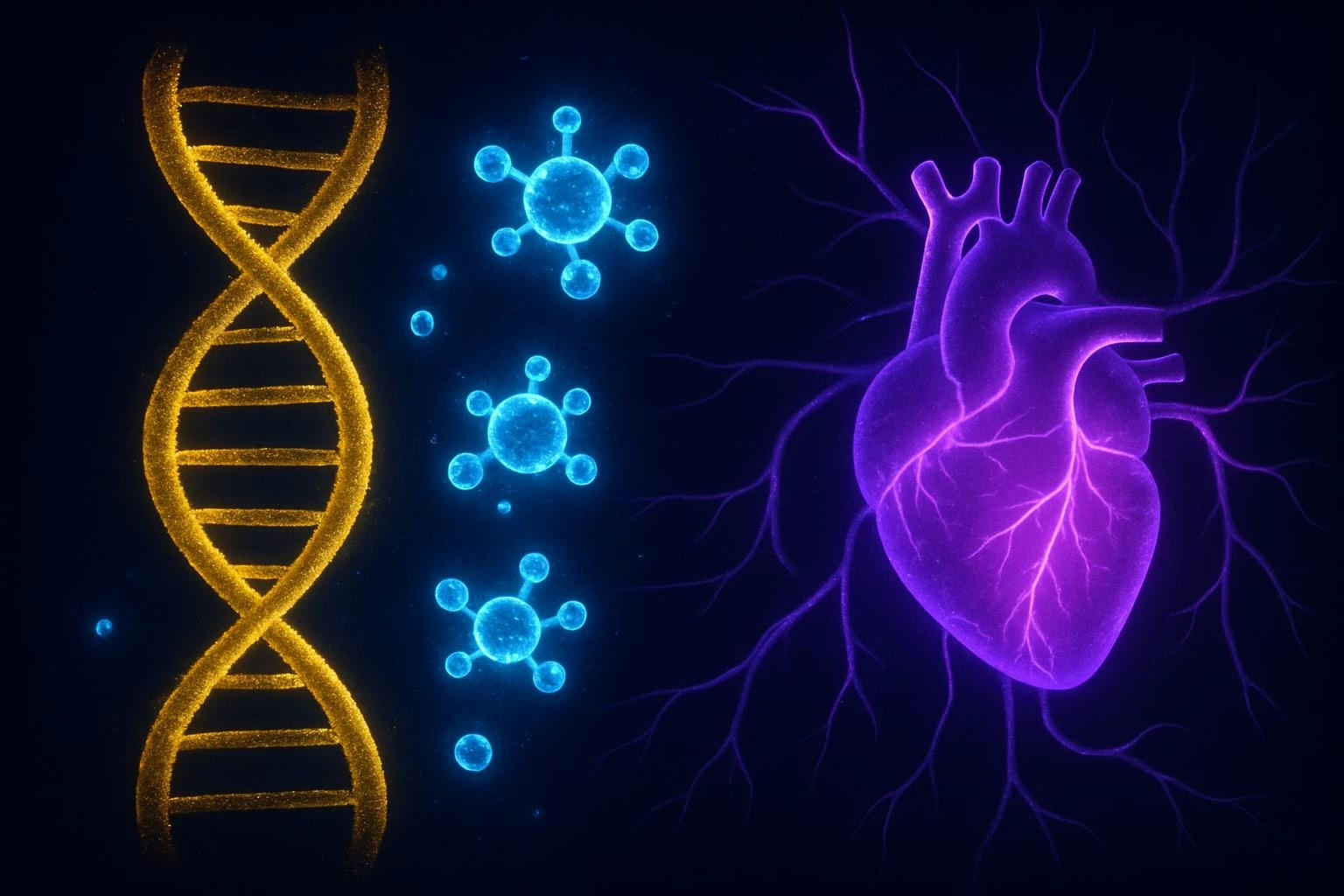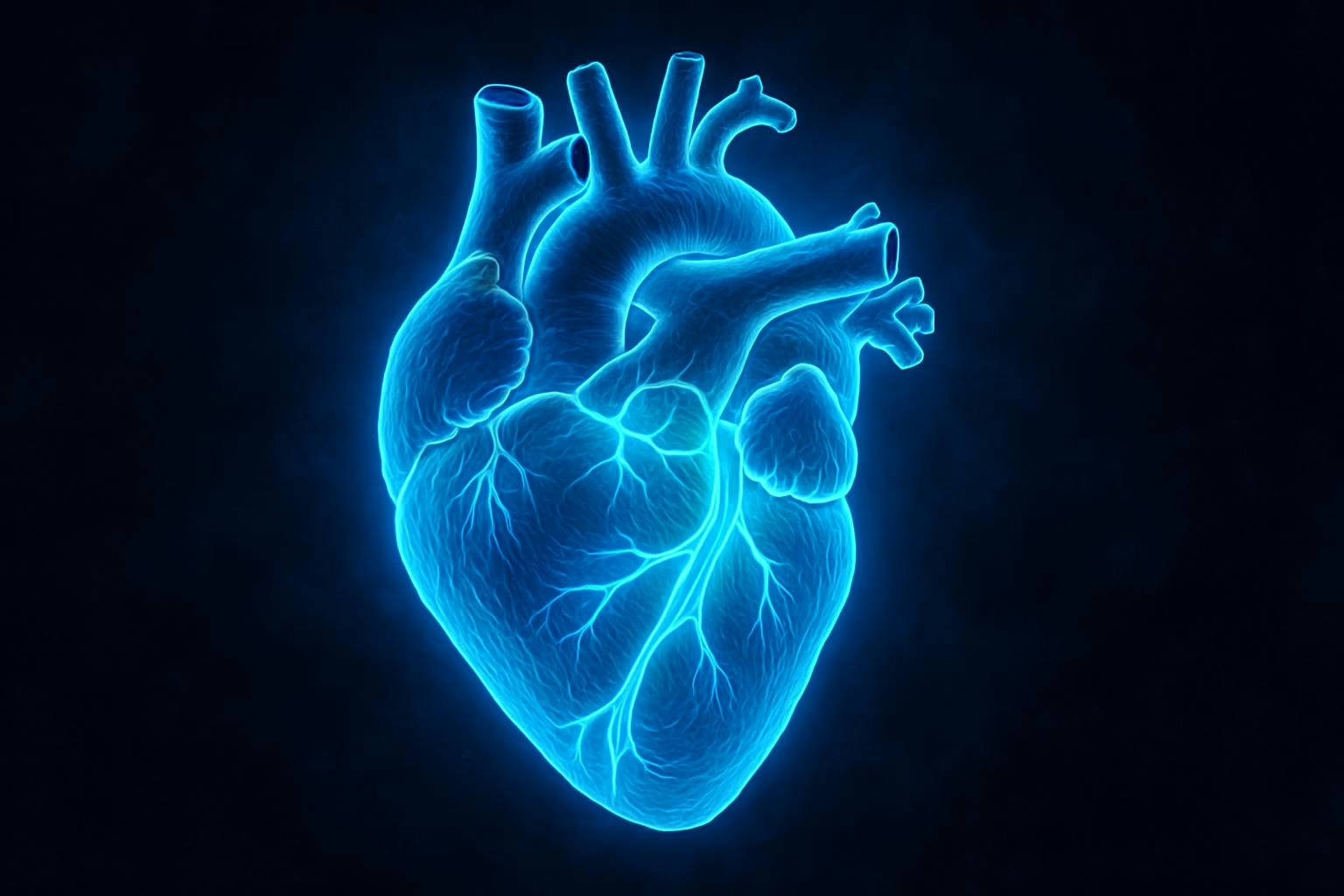
Vitamin B3 And Heart Health
Vitamin B3 or niacin is an essential vitamin which could support the health of the heart in our day to day activities.
Niacin or vitamin B3 plays a crucial role in supporting optimal cellular metabolism and energy production. This vitamin is supportive of improvements in the lifespan of our cells and DNA too. These are two very important influencing factors on the health of our bodies and especially the health of our heart.
These are important reasons why interest in niacin is emerging as a possible cardioprotective agent. Heart failure is a leading cause of death in many countries across the globe. Many individuals at risk of heart failure could also be at risk of having a deficiency in some of the core B vitamins.
Some studies have shown that vitamin B3 promotes heart cell survival which is heavily implicated in reducing the risks of heart failure or issues. Other research has shown that vitamin B3 may be able to reduce risks of dyslipidaemia and cardiovascular diseases.
Here the ways in which vitamin B3 or nicotinamide may support the health of our heart will be considered to show how optimal amounts this vitamin are essential in maintaining the health of our hearts.

Vitamin B3 And Our Health
Vitamin B3 which is also known as niacin or nicotinamide is essential to supporting optimal energy production within the body. Other influences of niacin include the natural production of steroids and cholesterol within the body.
This vitamin is water soluble and is part of the coenzyme NAD that is used by our mitochondria to support healthy energy production. NAD is used in DNA repair and in the regulation of cell death. Nicotinamide or niacinamide is very important in sustaining genetic integrity and could influence telomere integrity or length too. Nicotinamide may promote survival of tissues such as the liver after mild damage. Some studies also suggest that vitamin B3 could be preventative of skin cancer if used topically.
Vitamin B3 has diverse effects on the body. This vitamin has some antibacterial activity while also sometimes being used topically to treat skin conditions such as acne. Nicotinamide seems to support immune defences and the clearance of bacteria after an infection. Some studies also suggest that vitamin B3 could be neuroprotective against various neurodegenerative conditions.
Males require at least 16mg and females at least 14mg according to a suggested vitamin B3 RDA. Some rich food sources of this vitamin include liver, peanuts and also beef. There are various supplemental types of vitamin B3 available. Doses of supplemental vitamin B3 as nicotinamide do not readily result in skin flushing as the nicotinic acid version might do. Studies have established that 35mg of niacin is a tolerable upper intake level in adults and is well tolerated at these levels.

How Vitamin B3 Influences Heart Health
The effects of vitamin B3 may extend to the heart muscle because of how active the heart is. The health of the heart is heavily influenced by both energy production status and also heart tissue survival or longevity.
Vitamin B3 And Heart Energy
Vitamin B3 may improve the energy status within heart cells. This would allow them to work harder during the same duration of time. Improvements in energy status has an influence on aspects of cellular health such as repair and basic maintenance. These are also functions which nicotinamide or vitamin B3 naturally helps with as a regulator of DNA repair.
Studies support this and indicate that niacin or vitamin B3 supports improvements in mitochondrial energy production in those with mitochondrial disorders. Higher energy status from mitochondrial metabolism may result in improvements in heart cell survival and function. This may also include heart function during cardiac exercise.
Studies have found that impaired energy storage is linked to heart dysfunction in patients with heart failure. Abnormal changes to heart energy metabolism is widely recognised to be a factor in the development of heart failure. Studies show that vitamin B3 may encourage mitochondrial biogenesis which would further promote healthy energy production within the heart muscle.

Vitamin B3 And Heart Tissue Survival
Because vitamin B3 protects our telomeres and genetic integrity this vitamin may actively prolong heart tissue survival within the heart. Telomere length is heavily linked with improved survival of our cells. An increased ratio of heart cell death or turnover to heart tissue maintenance is heavily linked with reduced heart functioning and heart attacks.
Heart cell death causes heart dysfunction and is a big cause of heart failure. Vitamin B3 may prevent heart tissue death and then preserve optimal heart health. Research shows that vitamin B3 could be preventative of cellular death under systemic tissue stress. Nicotinamide or vitamin B3 has been specifically observed to promote heart cell survival and this may support improved cardiac function.
These studies shows that improved energy production and heart cell survival may be very important ways in which vitamin B3 could support the optimal health of our heart in our daily functions.

Vitamin B3 And Cholesterol
Studies have shown that vitamin B3 may support healthy cholesterol production to increase HDL to LDL ratio. This is another reason why vitamin B3 may be more favourable towards the health of the heart. This is because dyslipidaemia caused by unusual cholesterol counts is currently considered to be a risk factor in the development of cardiovascular diseases such as blocked blood vessels and heart attacks.
Other research suggests that vitamin B3 could reduce the risks of developing cardiovascular diseases through antioxidant and anti inflammatory actions. Systemic build ups in inflammation are very much implicated in the development of cardiovascular diseases and is detrimental to the functioning of our heart.

Vitamin B3 And Exercise
Research indicates that our demands of certain vitamins change with intensity of physical exercise. Exercising at a higher intensity may increase our need of vitamins such as vitamin B3 because of the role of this vitamin in supporting energy production. Vitamin B3 may be very important in maintaining optimal heart health during cardio exercise where the heart muscle is required to work much harder.
Studies show that improvements in dietary intake of niacin are linked with an improved body composition. This includes improved muscle mass and a reduced body fat content. Vitamin B3 supplementation has specifically been observed to increase numbers of type I or oxidative skeletal muscle fibres. Supplementation with vitamin B3 or niacin may support improved muscle retention and muscle mass which could be of benefit to the health of our heart.
Vitamin B3 could support cardio exercise ability through heart muscle tissue retention. There are also indications that supplemental vitamin B3 could support improvements in muscle strength but this is an emerging area of research. Some studies indicate vitamin B3 supplements may improve power lift capacity and running ability.
Overall the research shows that niacin could be supportive of optimal heart health through promoting heart cell survival and energy production.

Summary
B vitamins such as vitamin B3 or niacin are heavily linked with the health of the heart. They support the healthy metabolism of cells in the heart which sustains heart function.
We require between 14mg and 16mg of vitamin B3 whether female or male according to a standard RDA. Some rich food sources of vitamin B3 include liver and beef.
Vitamin B3 plays a very important role in maintaining optimal levels of energy production. This vitamin is also linked with DNA repair and genetic preservation. These are two important factors which support optimal heart health.
A sustained source of energy is very important in supporting the optimal functioning of the heart which is constantly working throughout the day. This also promotes prolonged heart cell survival. Niacin or vitamin B3 also supports DNA repair and so may also promote heart cell survival through supporting telomere length.
Progression in heart issues or failure is linked with a higher ratio of heart cell death to heart tissue preservation. Research shows that increased levels of vitamin B3 in heart tissue is supportive of heart cell survival. Heart tissue preservation and higher energy levels could support more optimal heart function.
This includes during exercise where our demands of certain vitamins change. Some studies have found that niacin supplements could increase muscle retention and could improve muscle power. Vitamin B3 could also support cardio exercise ability. Vitamin B3 may also reduce risks of dyslipidaemia and the development of cardiovascular diseases such as heart attacks which is detrimental to the optimal functioning of our heart.
Overall the research shows that niacin could be supportive of optimal heart health through promoting heart cell survival and energy production.
You can read more interesting articles below.





